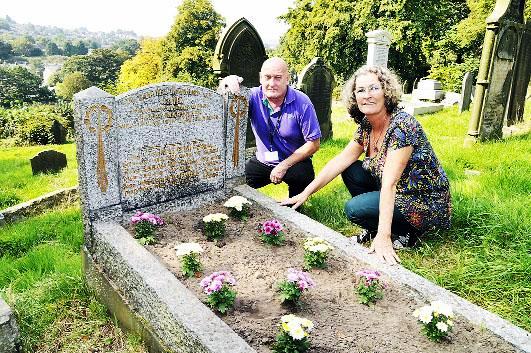Like so many influential people in 19th century Lancashire football, he was a Scot. Born just north of Dumfries in 1843, Mitchell initially worked in Glasgow before travelling south in the 1860s, and married a local lass in Blackburn in 1866.
At some stage, possibly in time for their 1884 FA Cup victory, he became involved with Blackburn Rovers and was with them as secretary-manager and club director for further triumphs in 1885, 1886, 1890 and 1891. He had a year as manager of Arsenal from 1897-98 before returning to Lancashire to live out his days; he died in Blackburn in 1921.
His football career is well described in the Arsenal History blog, but some aspects of his life are a bit murkier - not least the fact that he was a convicted fraudster before he became involved in football. Thanks to the British Newspaper Archive his criminal past has come to light with detailed reports of his trial and conviction for embezzlement early in 1880. He was a salesman (and former business partner) with William McKie & Co, wine and spirit merchants, and was accused of taking many hundreds of pounds although the court case was based on three specimen charges for much smaller amounts. Found guilty by a jury (which recommended mercy), 36-year-old Mitchell was sentenced to six months with hard labour.
Evidently he served his time and carried on as though nothing had happened, as in the 1881 census he is back living with his family, described as a commercial traveller.
However, Mitchell was no stranger to the courts and in 1884 was found guilty of assault (fined 10 shillings). In 1888 he was implicated in a pheasant poaching case (case dropped), then again two years later Nottingham Forest brought an action in the High Court against him and other Blackburn directors for poaching players.
Somehow, Mitchell not only rose above his criminal past but did well for himself. He drew a salary of £14 from Blackburn Rovers and was described in the 1891 census as living on his own means, while ten years later he was a retired secretary of a football club. There are gaps in his life story but what remains without doubt is that he was an influential Scot in the early days of English professional football.
* And in case you are wondering, he is no relation to the author!

 RSS Feed
RSS Feed